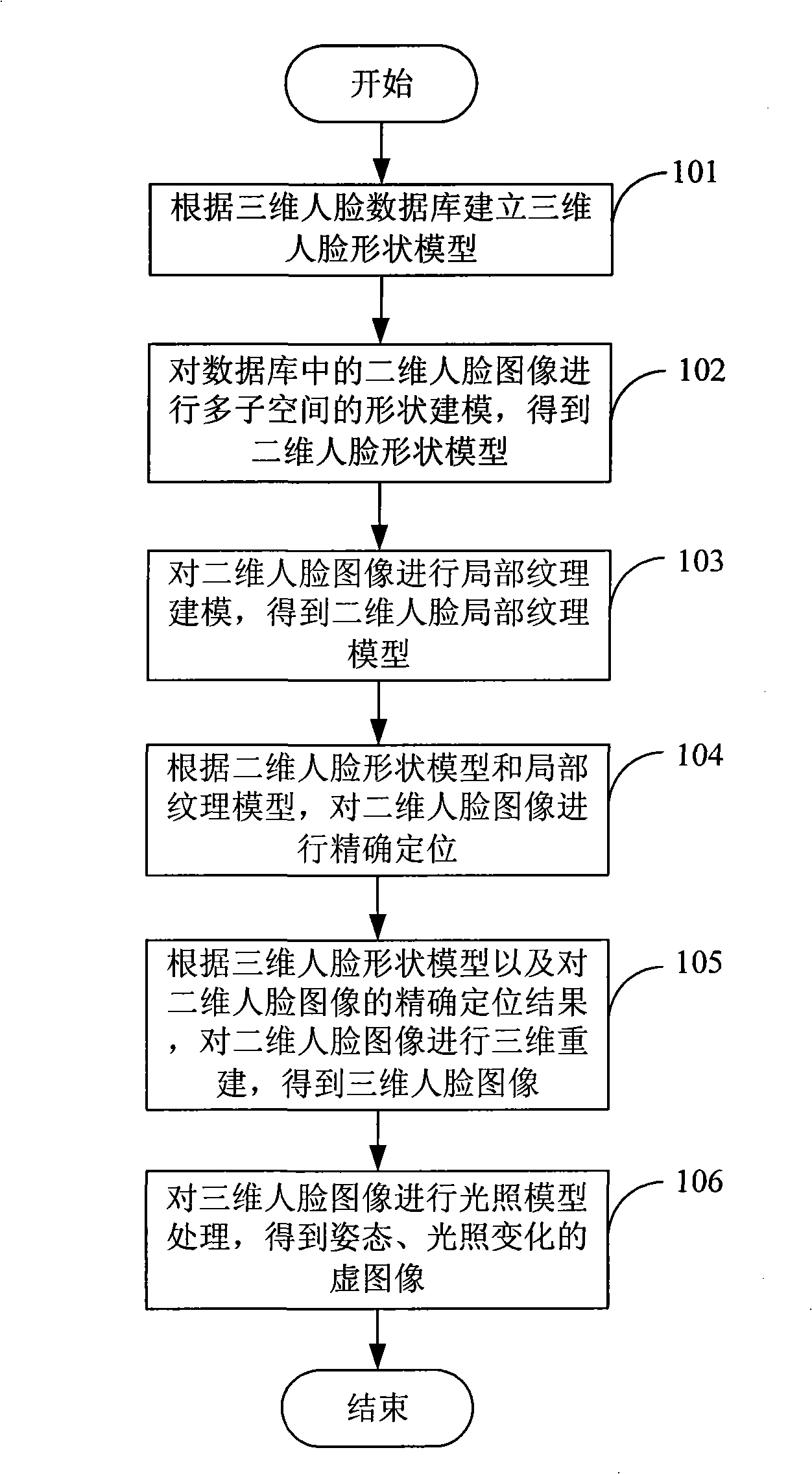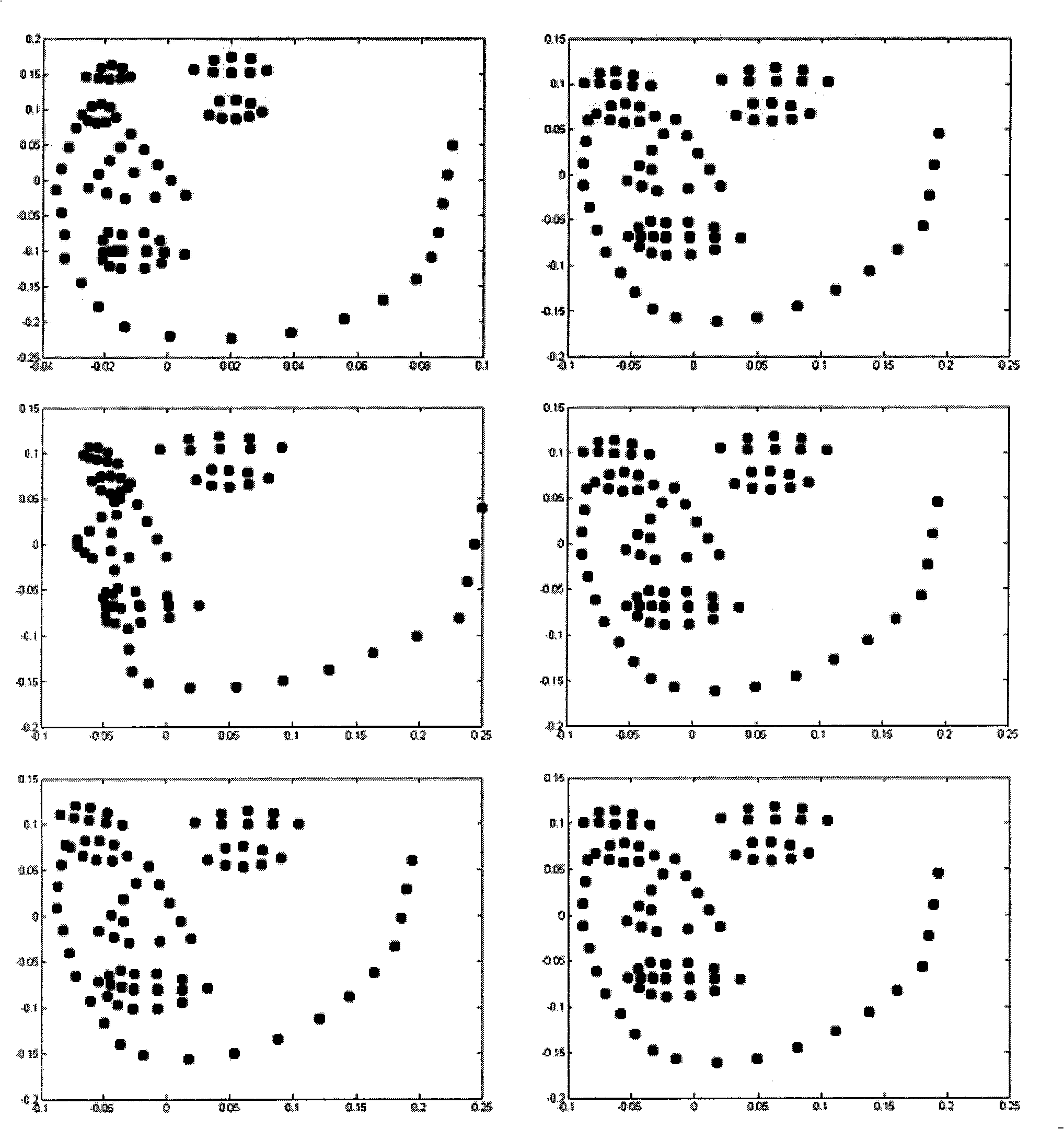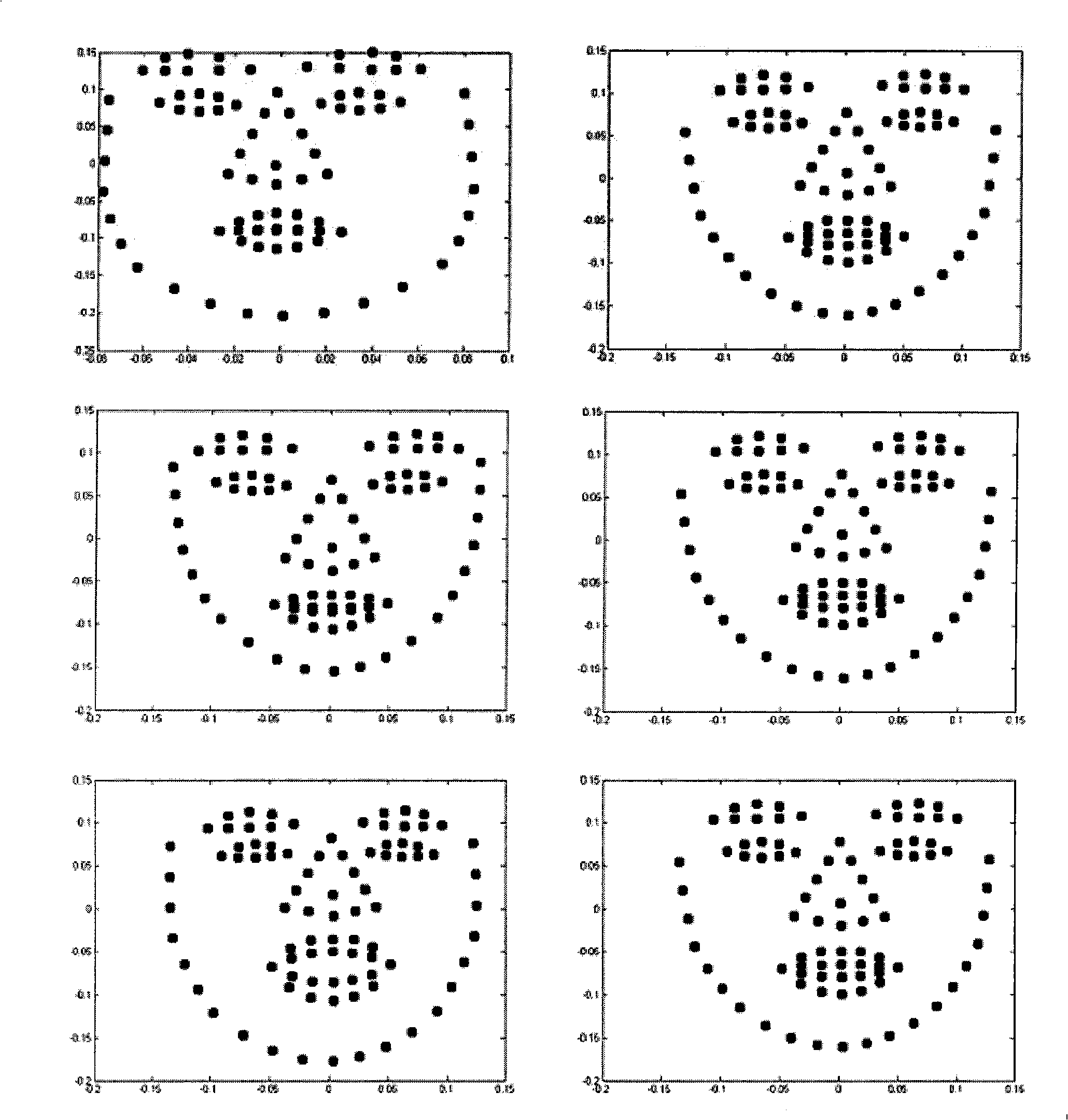Three-dimensional human face recognition method based on human face full-automatic positioning
A three-dimensional face and face image technology, applied in the field of computer vision and pattern recognition, can solve the problems of difficult face segmentation, poor recovery accuracy, difficulty, etc., to increase the sample space and three-dimensional reconstruction of pose and illumination changes. The effect of increased speed, high efficiency and recognition rate
- Summary
- Abstract
- Description
- Claims
- Application Information
AI Technical Summary
Problems solved by technology
Method used
Image
Examples
Embodiment 1
[0030] The embodiment of the present invention provides a method for generating a virtual human face image. The method performs multi-subspace shape modeling on a two-dimensional human face image in a database to obtain a two-dimensional human face shape model; Carry out local texture modeling to obtain a two-dimensional face local texture model; accurately position two-dimensional face images according to the two-dimensional face shape model and local texture model; As a result of the precise positioning of the face image, 3D reconstruction is performed on the 2D face image to obtain a 3D face image; the 3D face image is processed with an illumination model to obtain a virtual image of posture and illumination changes, thereby increasing the posture and illumination of the image. The sample space of illumination changes can overcome the influence of pose and illumination changes in the image recognition process. At the same time, the speed of 3D reconstruction has been greatl...
Embodiment 2
[0157] This embodiment provides a method for face image recognition. The method obtains a two-dimensional face image to be recognized; extracts features from the two-dimensional face image; compresses the extracted features to obtain compressed features ; Classifying the compressed features to obtain a classification result; matching the classification result with a preset classification result, and identifying the face image to be recognized according to the matching result. Such as Figure 4 As shown, this embodiment includes:
[0158] 201: Obtain a two-dimensional face image to be recognized, and perform preprocessing.
[0159] Specifically, the preprocessing of the two-dimensional face image includes: correction of the plane rotation and normalization of the scale and gray level of the face area, usually using the eye part in the image as a reference point for normalization. The normalization method is the same as the method in Example 1, and will not be repeated here. ...
PUM
 Login to View More
Login to View More Abstract
Description
Claims
Application Information
 Login to View More
Login to View More - R&D
- Intellectual Property
- Life Sciences
- Materials
- Tech Scout
- Unparalleled Data Quality
- Higher Quality Content
- 60% Fewer Hallucinations
Browse by: Latest US Patents, China's latest patents, Technical Efficacy Thesaurus, Application Domain, Technology Topic, Popular Technical Reports.
© 2025 PatSnap. All rights reserved.Legal|Privacy policy|Modern Slavery Act Transparency Statement|Sitemap|About US| Contact US: help@patsnap.com



